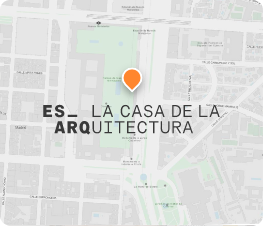Loading...
Fumihiko Maki
- ABOUT Pritzker
- Pritzker 2022
- Pritzker 2021
- Pritzker 2020
- Pritzker 2019
- Pritzker 2018
- Pritzker 2017
- Pritzker 2016
- Pritzker 2015
- Pritzker 2014
- Pritzker 2013
- Pritzker 2012
- Pritzker 2011
- Pritzker 2010
- Pritzker 2009
- Pritzker 2008
- Pritzker 2007
- Pritzker 2006
- Pritzker 2005
- Pritzker 2004
- Pritzker 2003
- Pritzker 2002
- Pritzker 2001
- Pritzker 2000
- Pritzker 1999
- Pritzker 1998
- Pritzker 1997
- Pritzker 1996
- Pritzker 1995
- Pritzker 1994
- Pritzker 1993
- Pritzker 1992
- Pritzker 1991
- Pritzker 1990
- Pritzker 1989
- Pritzker 1988
- Pritzker 1987
- Pritzker 1986
- Pritzker 1985
- Pritzker 1984
- Pritzker 1983
- Pritzker 1982
- Pritzker 1981
- Pritzker 1980
- Pritzker 1979
Japanese architect Fumihiko Maki is an architect whose work is intelligent and artistic in concept and expression, meticulously executed. He is a modernist who has fused the best of Eastern and Western cultures to create an architecture that represents the age-old qualities of his native country, while juxtaposing contemporary construction methods and materials.
His first contact with modern architecture was in 1930s Tokyo, where some pioneering architects departed from traditional and European styles. After graduating from the University of Tokyo, he travelled to the United States to further his studies at the Cranbrook Academy of Art and Harvard University's Graduate School of Design, under the tutelage of José Luis Sert. He later taught at the University of Washington, where, as a young professor, he designed his first built work. These early experiences helped him to lay the foundations for a style of his own that would reflect his cosmopolitan view of the world.
Early in his career, he became a founding member of an avant-garde group of talented young Japanese architects who called themselves "Metabolists", a word derived from the Greek with various meanings: alteration, variation, revolution, with changeability and flexibility being key elements of their vision. His aim was never to design in isolation from the structure of the city as a whole.
Maki has expressed his constant preoccupation with "parts" and "whole", describing one of his aims as achieving a dynamic balance that sometimes includes masses, volumes and sometimes contradictory materials.
He uses light masterfully, making it as tangible in each design as the walls and the roof. In each building, he looks for ways to make transparency, translucency and opacity exist in total harmony. In his own words: "Detail is what gives rhythm and scale to architecture"
His work is astonishingly diverse, from the impressive Japan Convention Centre near Tokyo with its artificial ridge of stainless steel roofs, to his earlier, smaller YKK Guest House or a planned orphan village in Poland.
The dimensions of his work mark a career that has greatly enriched architecture. As a prolific author, architect and teacher, Maki makes a significant contribution to the understanding of the profession.
Maki has described creation in architecture as "discovery, not invention... a cultural act in response to the common imagination or vision of the time". Furthermore, he believes that "it is the architect's responsibility to leave behind buildings that are assets for culture".
The 1993 Pritzker Architecture Prize is awarded to Fumihiko Maki for building works that are not only expressions of their time, but are destined to outlive fashions.
+info:
https://www.pritzkerprize.com/laureates/1993





